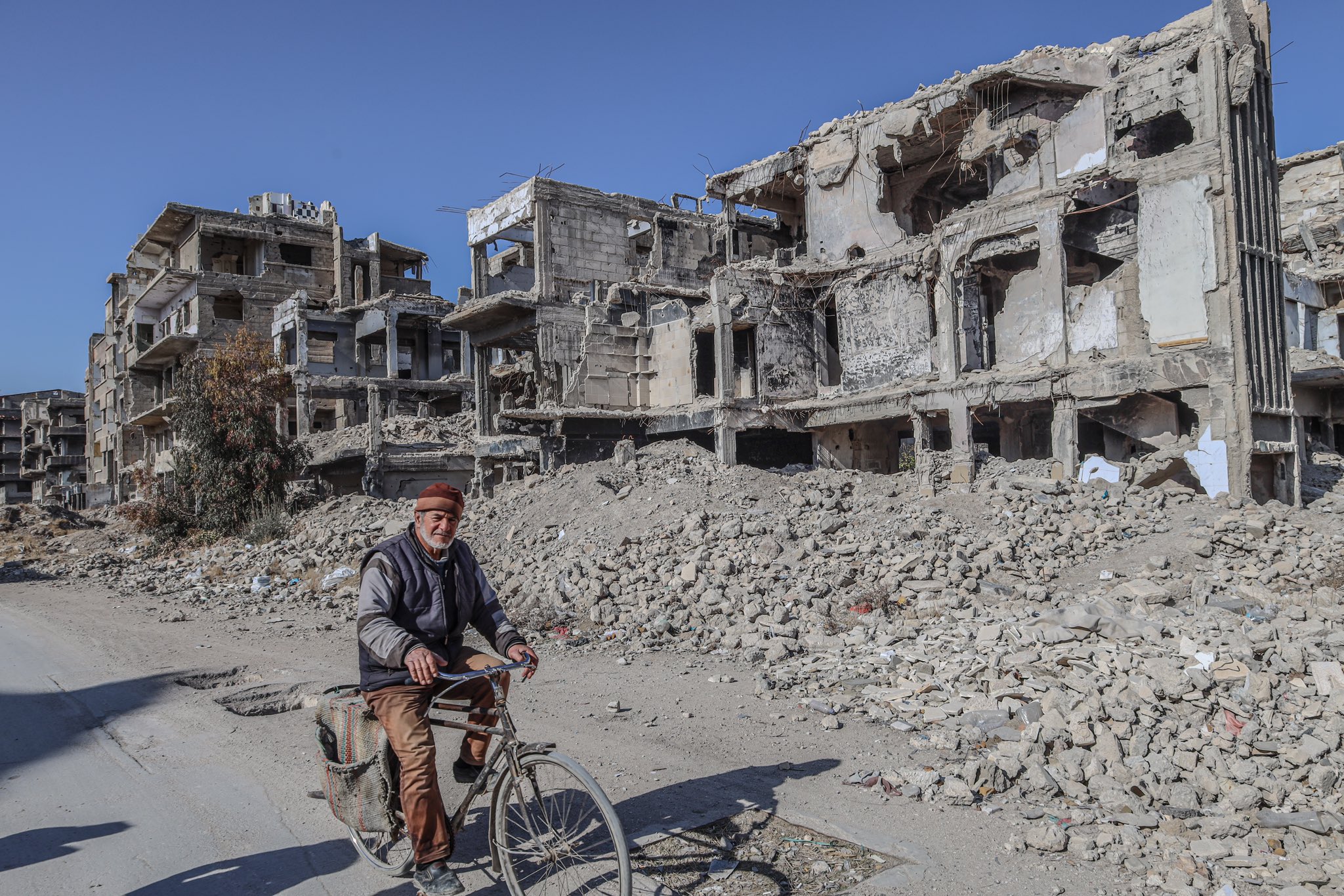After the ouster of the Assad government in Syria in December, the US has not recognized the new Hayat Tahrir al-Sham government (HTS). This has meant a number of issues, including continued sanctions on Syria and the State Department downgrading of Syria’s mission at the UN.
Efforts to begin reconstruction after the protracted Syrian Civil War are further hampered by those US sanctions and policies of openly forbidding other nations from contributing to reconstruction without the express approval of Israel.
The Biden Administration offered a temporary sanction waiver for Syria when the war wrapped up, but the Trump Administration is issuing a substantial and growing list of demands for the HTS is they want the US to consider extending it.

The al-Yarmouk Palestinian camp near Damascus | image from social media
A big new demand being issued by the US to that Syria has to ban Palestinian groups and expel “extremist” Palestinians from the country. They want Syria to forbid Palestinian groups from operating within Syria and from raising funds.
Potential difficulties in this demand include that the US does not appear to have provided a list of Palestinian groups it wants banned. Rather the term “Palestinian groups” appears open to interpretation and the will of the administration at any given time.
Syria has over 600,000 Palestinians living there by most estimates, and most Palestinian organizations, whether militants or civil service groups, have some presence within Syria. This could be a far-reaching ban impacting an enormous number of different groups, depending on whether they are considered Palestinian or not.
The US intentions here aren’t obvious on the surface, though there have long been analysts speculating that a big part of supporting the regime changing in Syria was about cutting out historic Syrian support for the Palestinians.
Some Palestinian groups were supportive of Assad during the civil war, while others expressed support for the rebellion in various forms. There was and is a lot of uncertainty about where the HTS will fall on the issue, which is profoundly consequential for the region. No major Palestinian group has expressed opposition to the HTS since they took power.
The HTS has, however, called for the dissolution of the PLA and the disarming of all factions in the country, including the Palestinian ones. That’s still well short of a total ban on operations and fundraising for the groups, and it’s not even clear if the scope of Palestinian groups in the US demand is intended to include non-violent NGOs that aren’t armed in the first place.
A potential further complication is that the US demand doesn’t even include a promise of extending the Biden waiver, only that they would “consider” renewing it. Given the nebulous nature of the wording of this demand, it would be very easy for the US to not give Syria anything in return, either arguing that they didn’t comply, or that they consider the waiver and decided against it.


